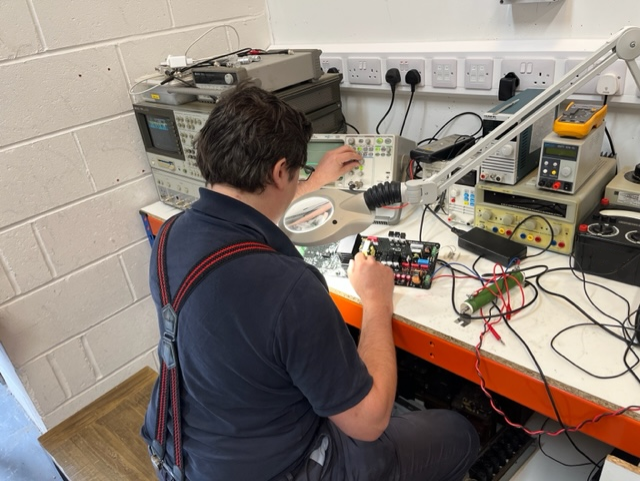Bear Instruments, leading edge power electronics systems and instrumentation design and manufacturer, announced today (25 September) it is part of a consortium to deliver an affordable, reliable and clean energy microgrid for Vietnamese agriculture farms.

Image Credit: Bear Instruments
Bear Instruments are delivering the prototype microgrid to include the gas turbine, solar array, 2nd life EV battery for storage and a grid tied connection. This includes modeling of batteries, evaluating state of health and state of charge along with development of the micro grid hardware itself.
Dr. James Green, Managing Director said, “Our consortium is focused on optimizing the microgrid control, building, testing and delivering power conversion for lab-testing, developing energy conversion models and helping to identify an efficient secondary battery market for energy storage.”
The company is developing power electronic energy conversion (DC/DC converters, AC/DC rectifiers, and DC/AC inverters) for optimum microgrid performance.
Many existing AC-networked microgrids, in this application space, with solar PV and battery storage are high cost with low efficiency. The payback period in the Vietnam PV power plant industry is 10 to 14 years. And secondary life batteries for energy storage are quite new in Vietnam and are still not mature in more developed countries.
Combining these factors with very expensive biogas treatment in Vietnam means development of a clean, affordable microgrid is of great importance to rural families, who are generally low income and lack the resources to pay the upfront costs.
The other key technical challenge is to develop a cost effective treatment process for the raw biogas, based on bentonite, a waste material which is readily available from local mines. This is expected to reduce this cost by 20%.
The innovations work for both islanded mode and on-grid application, particularly for communities with off-grid/unreliable power-systems. They also work for second life batteries as energy storage solutions.
This project is sustainable in producing low carbon energy but also using pollutants from other industries. Methane from farming is also a much more reliable energy source than other solutions and has potential for wider application in other developing countries.
The consortium is led by Dr Khoa Dang Hoang at the University of Huddersfield. Along with Bear Instruments, the consortium includes Allgreen Energy, who have strong expertise in project management and building business models within the renewable energy sector; and Hochiminh City University, with its chemical process engineering lab focusing on bio-gas treatment.
The project is funded by Innovate UK and expects to deliver power efficiency of up to 5% and cost local communities 30% less to develop.
James Green, managing director of Bear Instruments, continued: “Generating renewable, reliable and affordable energy from waste is the holy grail of the sustainability and net zero movement. This is an important step in achieving that goal and it makes sense that the first beneficiaries are low income local communities.
“There are a number of electronics and processing hurdles to overcome and we are making great progress addressing these. The bears are really excited to play our role in making this a reality.”
The project will provide a cost-effective and reliable microgrid system for local agriculture farms as well as solving the environmental issue causing farm waste. The solution can scale up for any farm sizing.”
Dr Khoa Dang Hoang, University of Huddersfield
George Huang of Allgreenergy added: “Building quality power converters and inverters for a clean microgrid is a significant milestone to achieve environmentally friendly power generation. This innovative project has huge potential globally and the key is electronics. We want current and future generations to have equal access to renewable energy while living on a thriving and sustainable planet, and this will help achieve that.”